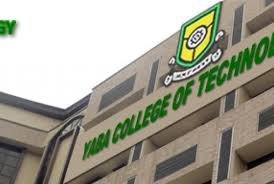One of President Bola Ahmed Tinubu’s signature policy is all set for implementation with the appointment of ace banker, Jim Ovia as Chairman of the Nigerian Education Loan Fund (NELFUND). Special Adviser to the President on Media and Publicity, Ajuri Ngelale announced the appointment of Ovia in a statement released at the weekend. The fund, which targets indigent Nigerians desirous of acquiring tertiary education, suffered some initial hiccups, before the Tinubu administration got things back on track. With the appoint of Ovia, much of the structure and bureaucracy for the fund is now up and running. What is left is for students who need the education loans to apply to benefit.
ALSO READ: Students’ Loan: NELFUND Targets 1.2 Million Beneficiaries
Mr. Ovia, the founder of one of Nigeria’s foremost banks, is a respected figure in the business world. According to the Nigerian President, Ovia was picked for the role because he is known for his extensive efforts and contributions towards nurturing and empowering young Nigerians. It was noted in the presidency statement that the education loan is a “pivotal intervention that seeks to guarantee sustainable higher education and functional skill development for all Nigerian students and youths.”
The Nigerian Education Loan Fund, the implementing body of this initiative, the presidency noted requires excellence and the finest professional Nigerians to guide and manage it. President Tinubu expressed his belief that Mr. Ovia, with his vast experience and professional stature, is the right person for this role.
ALSO READ :Business Mogul Lauds Tinubu Over Appointment Of Sawyerr As NELFUND CEO
The President stated, “Mr. Ovia will bring his immense wealth of experience and professional stature to this role to advance the all-important vision of ensuring that no Nigerian student suffers a capricious end to their pursuit of higher education over a lack of funds and of ensuring that Nigerian youths, irrespective of who they are, have access to higher education and skills that will make them productive members of society and core contributors to the knowledge-based global economy of this century.”

























